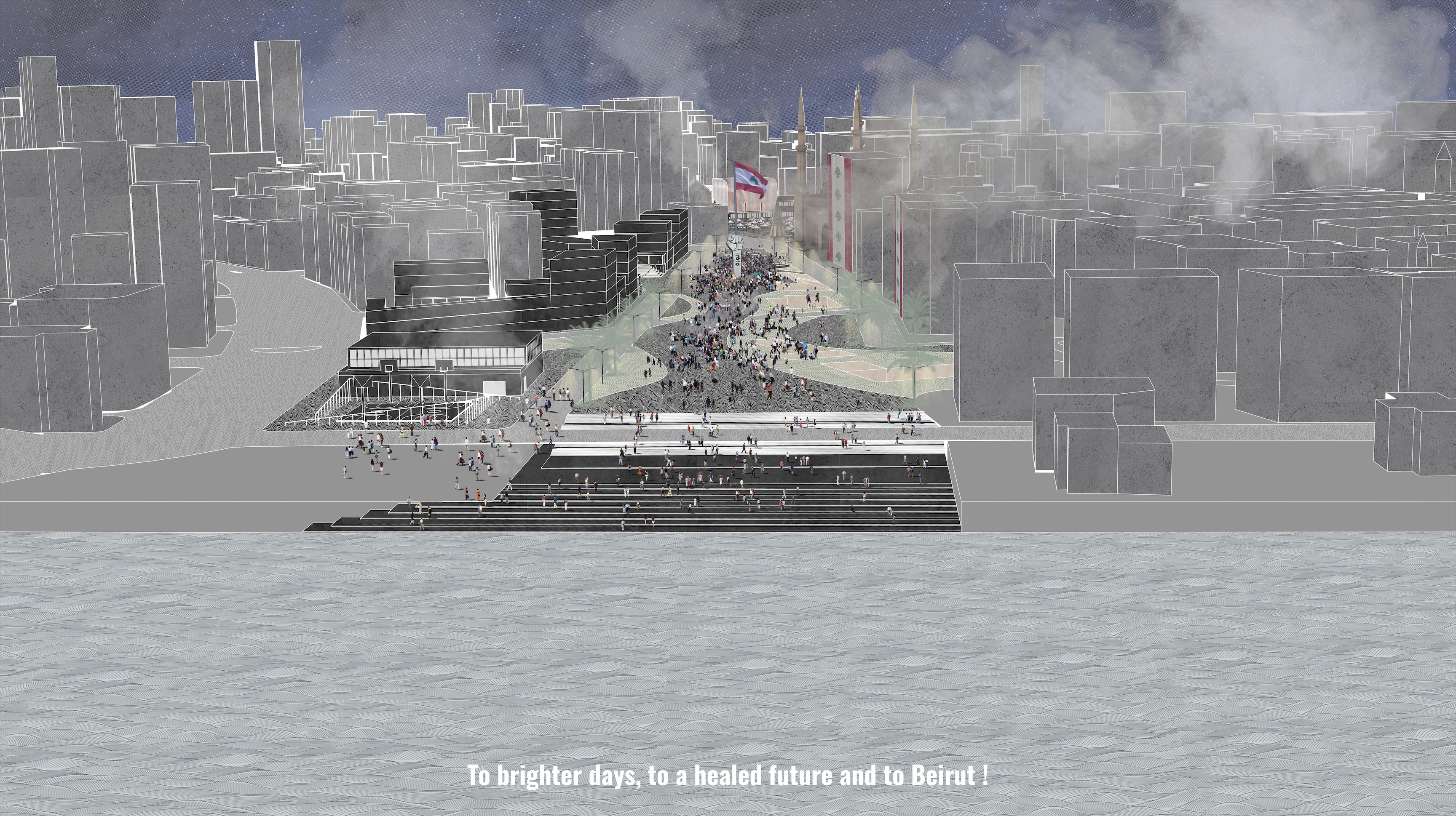MASTER OF URBAN DESIGN
MUD 732
STUDIO 3:
FALL 2021
PROFESSOR
EL HADI JAZAIRY
AFTER GEOTRAUMA: BEIRUT DOCKLANDS
The After Geotrauma: Beirut Docklands studio addresses the question of how urban designers can contribute to healing man-made tragedies and planting the seeds of alternative futures driven by residents.
In the aftermath of the Beirut port explosion of August 4, 2020 that killed an estimated 200 people, injured more than 6,000 and destroyed large sections of its infrastructure, including most of the city’s grain reserves and billions of dollars in damages across the city, Beirut residents buried their dead and cared for the wounded. Despite the absolute destruction and the magnitude of relief operations reconstruction began and residents started to ponder change and reform. Catastrophic events such as the Halifax explosion of 1917 or the Bombay explosion of 1944, have generated a huge psychological toll but also sparked a burst of social and political change as well as health reforms. For old Halifax residents who still remember the explosion, it is still a large part of their lives. The echoes of the explosion ring through their lives each day. “It makes you sad, but in a strange way proud, too.” Indeed, estimates show large property value increases resulting from this reconstruction, with the re-planning and the updating of the housing stock together generating even more value.
The studio started by opening up a series of research directions building on a list of readings on trauma and port urbanism as well as an overview of precedent projects that address the nexus of political economy in Lebanon. Later, the students recognized an issue, built a position and proposed strategies to heal the crisis in Beirut.
︎︎︎BACK ︎
MUD 672: STUDIO 1
MCLAIN CLUTTER,GINA REICHERT
Khalid Altamimi,
Zhaoqi Zhu,
Zhilin Cai
Jiawei Ding,
Jason Tran,
Quan Li
MUD 722: STUDIO 2
cross-listed**MUD 732: STUDIO 3
EL HADI JAZAIRYShuyue Lei,
Zhuyu Shi
Anmol Poptani,
Haorui Tian
STUDENT WORK
ANMOL POPTANI,
HAORUI TIAN
“GROUNDS FOR THE REVOLUTION YET TO COME”
The city of Beirut has seen multiple crises and has been the grounds for social, political and religious tensions throughout history.
This project, as the name suggests ‘Grounds for the Revolution Yet to Come’, accepts the fact that the cascading layer of conflicts is so embedded in the city, that it is going to take a long time for the city to revolutionize and overcome them. Intervening at the sites of conflicted contexts, the proposal aims to strengthen the public agency in these spaces and address the ongoing crisis and the crises yet to come.







